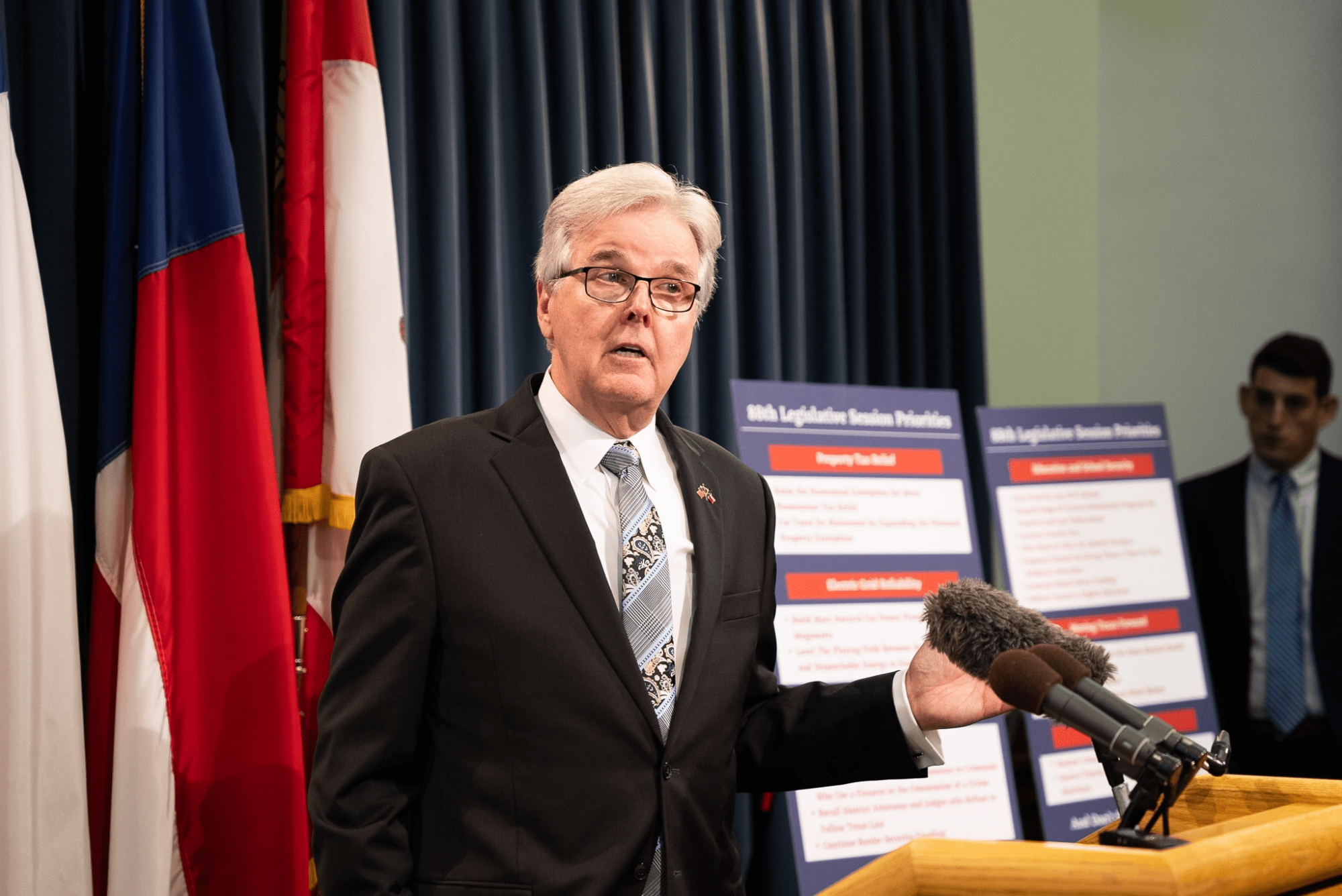Those tremors—coupled with a Saudi Arabia-Russia oil price war and Chinese demand drop that’s dropped the price of a barrel of West Texas Intermediate down to the low $20s (down from its 52-week high of $66.60) and a general slowdown of every economic sector—mean that Texas families are in for a rough go.
“We now assume a peak 20 percent decline in the level of manufacturing output by April. This effect captures the impact of reduced domestic demand for non-food goods, reduced foreign demand for U.S. goods, exports, supply chain disruptions, and plant closures,” the bank wrote a few days ago, also predicting that it would take a long time for the economy to pull itself out of the ditch.
“We assume that this drag then fades gradually by 10 percent each month. While the exact timing is highly uncertain and relapses are plausible, the assumption of a gradual recovery reflects the potential contributions from factors such as effective mitigation and testing actions, weather effects, medical breakthroughs, or adaptation by firms and consumers,” the bank added.
It’s both the current crisis and the predicted prolonged recovery that has Congress moving to pass a bill whose cost nears $2 trillion in order to bail out beleaguered industries, offer cheap loans to small businesses, and provide direct subsidies to every American.
But as House Ways and Means Committee Chairman Dustin Burrows (R-Lubbock) said in a radio interview earlier this morning, “The feds, whether you like it or not, are the guys with a printing machine. They literally print money.”
Concerns about fiat currency and central banks aside, Texas—unlike the federal government—doesn’t have access to a printing machine. And also, unlike the federal government, a balanced budget amendment to our state’s constitution prevents the State of Texas from running a budget deficit. That means the State of Texas must come up with the cash it needs to spend at least as fast as it spends it.
“It is impossible to tell what we’re going to be looking at at the state level financially over the next couple [of] months, let alone the next session,” Burrows also said.
While it’s impossible to tell the specifics, it’s pretty clear that lawmakers will soon have a difficult situation on their hands.
Texas Comptroller Glenn Hegar issued a rosy revenue estimate for lawmakers last January and even revised it upward a few months later in order to give them a little more money to spend. But now Hegar is saying he will likely revise his estimates downward in a few months.
On a Sunday call with members of the Texas Legislature, Hegar said lawmakers should prepare for significant revenue shortfalls to both general revenue (funded largely by the state sales tax) and to the Economic Stabilization Fund. The fund, which is often referred to as the Rainy Day Fund, is largely funded through oil and gas taxes and intended to be tapped only for natural disasters and economic shortfalls.
But that didn’t stop lawmakers from tapping it last time, while also blowing through a record $10.5 billion surplus—despite warnings from Texans for Fiscal Responsibility and citizen groups urging them to leave the fund intact for times of actual need.
Already, multiple lawmakers are telling Texas Scorecard that a special session could be on the horizon for the Texas Legislature in order to make spending cuts as a result of depressed revenue projections.
One lawmaker said he’s already putting his staff to work and beginning talks with colleagues about what can be cut to safeguard more important spending.
Those are positive signs, but swift action will need to be taken to ensure the most savings are achieved and that the state’s planned spending for public school teacher salaries, property tax relief, and other necessary measures are protected.
Every Texas family is going over their budget right now and looking for ways to cut back in the midst of this economic uncertainty. Texas lawmakers must do the same with the taxpayer dollars they’ve been entrusted with. Over the coming days, we at Texans for Fiscal Responsibility will be highlighting some potential savings that could be achieved should Gov. Greg Abbott and the Texas Legislature decide to act.
If you have ideas or suggestions of your own, please submit them to us and we will explore their feasibility and financial effect. You can reach us at submission@empowertexans.com.





